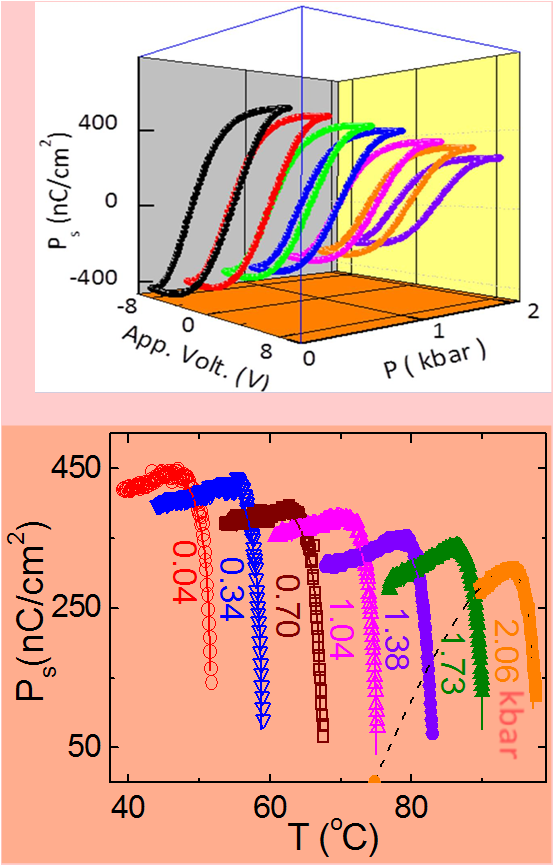Fine tuning of molecular interactions in a polarization trend reversal system; Trend reversal in polarization of a ferroelectric liquid crystal
Prasad N. Bapat, D. S. Shankar Rao, S. Krishna Prasad, Jawad Naciri and B.R. Ratna,
J. Phys. Chem. B, 115, 10425 (2011)

In contrast to the exhaustive measurements of various properties of ferroelectric liquid crystals at atmospheric pressure, only a few studies exist at high pressure. Here we report the isobaric thermal variation of spontaneous polarization (Ps), coercive voltage (Uxc), and rotational viscosity () of a ferroelectric liquid crystal (10PPBN4) as a function of applied pressure. The material having a high value of Ps exhibits a trend reversal: as the temperature is lowered below the transition from the smectic A to the smectic C* (ferroelectric) phase, Ps increases to begin with but after reaching a maximum decreases with further decrease in temperature. Interestingly, the trend reversal feature becomes more dominant as the pressure is increased. Further, at a fixed reduced temperature with respect to the transition, all three parameters Ps, Uxc, and () decrease with pressure. We show that the data can be well described by a model developed for materials exhibiting a sign reversal in Ps. The single characteristic parameter of the model, viz., the ratio of the inversion temperature (at which Ps changes sign), to the transition temperature, is seen to increase with pressure, corroborating predominance of trend reversal at elevated pressures observed experimentally.
